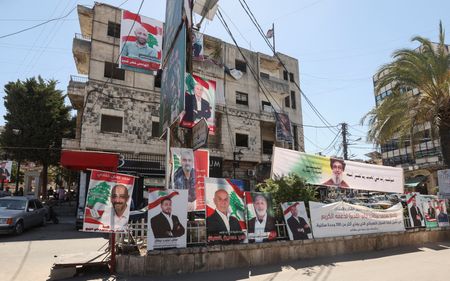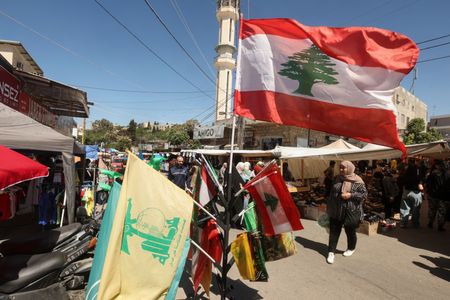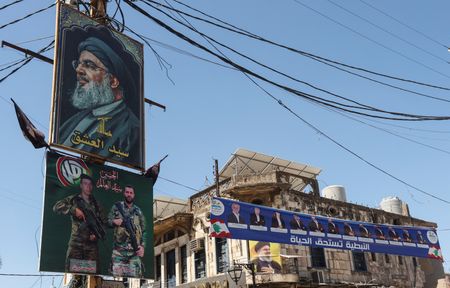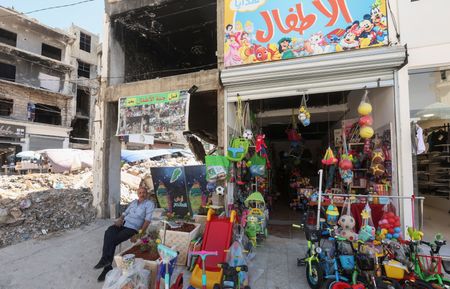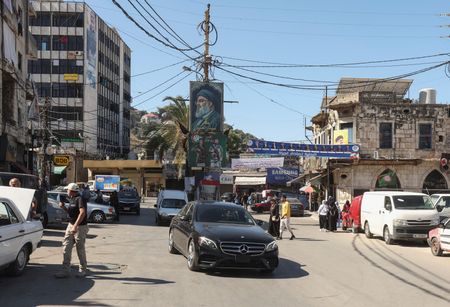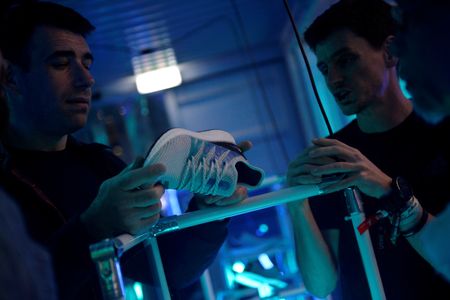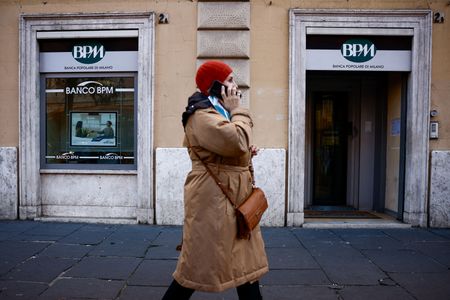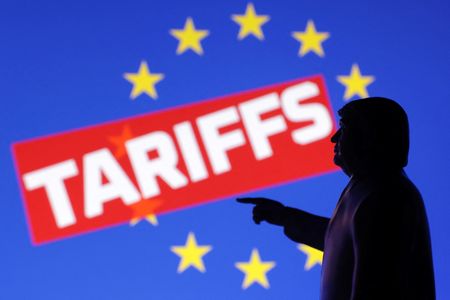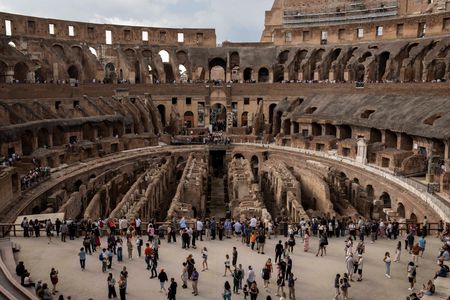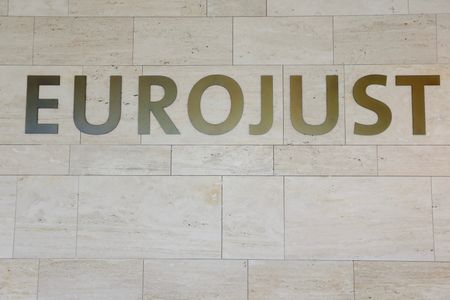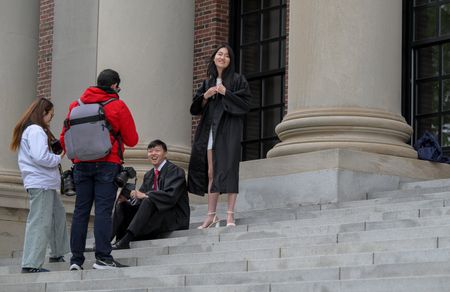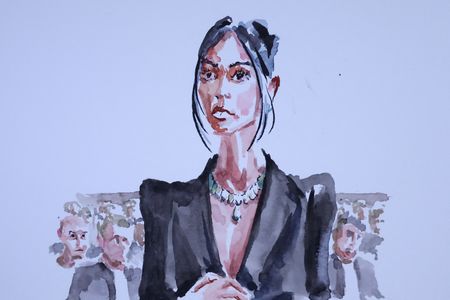By Laila Bassam and Emilie Madi
NABATIEH, Lebanon (Reuters) – Amidst the rubble left by Israeli bombardment of south Lebanon, campaign posters urge support for Hezbollah in elections on Saturday as the group aims to show it retains political clout despite the pounding it took in last year’s war.
For Hezbollah, the local vote is more important than ever, coinciding with mounting calls for its disarmament and continued Israeli airstrikes, and as many of its Shi’ite Muslim constituents still suffer the repercussions of the conflict.
Three rounds of voting already held this month have gone well for the Iran-backed group. In the south, many races won’t be contested, handing Hezbollah and its allies early wins.
“We will vote with blood,” said Ali Tabaja, 21, indicating loyalty to Hezbollah. He’ll be voting in the city of Nabatieh rather than his village of Adaisseh because it is destroyed.
“It’s a desert,” he said.
The south’s rubble-strewn landscape reflects the devastating impact of the war, which began when Hezbollah opened fire in support of Hamas at the start in October 2023 of the Gaza conflict and culminated in a major Israeli offensive.
Hezbollah emerged as a shadow of its former self, with its leaders and thousands of its fighters killed, its influence over the Lebanese state greatly diminished, and its Lebanese opponents gaining sway.
In a measure of how far the tables have turned, the new government has declared it aims to establish a state monopoly on arms, meaning Hezbollah should disarm – as stipulated by the U.S.-brokered ceasefire with Israel.
Against this backdrop, the election results so far indicate “the war didn’t achieve the objective of downgrading Hezbollah’s popularity in the community”, said Mohanad Hage Ali of the Carnegie Middle East Center, a think tank. “On the contrary, many Shia now feel their fate is tied to Hezbollah’s fate.
“This (Hezbollah’s election performance) really matters,” Hage Ali added. “It shows they still represent the great majority of Shi’ites and underlines the reality that any attempt by other Lebanese to disarm them by force would risk being seen as a move against the community and jeopardise civil peace.”
Hezbollah’s arms have long been a source of division in Lebanon, sparking a brief civil conflict in 2008. Critics say Hezbollah has unilaterally involved Lebanon in wider Middle East conflicts.
Lebanese President Joseph Aoun has called for dialogue with Hezbollah over a national defence strategy, implying discussion of its weaponry, but talks have yet to begin.
Foreign Minister Youssef Raji, a Hezbollah opponent, has said that Lebanon has been told there will be no reconstruction aid from foreign donors until the state establishes a monopoly on arms.
Hezbollah, in turn, has put the onus on the government over reconstruction and accuses it of failing to take steps on that front, despite promises that the government is committed to it.
A U.S. State Department spokesperson said that while Washington was engaged in supporting sustainable reconstruction in Lebanon, “this cannot happen without Hezbollah laying down their arms”.
“We have also made clear transparency and economic reform are the only path to greater investment and economic recovery for the country,” the spokesperson said in response to a Reuters query.
DISARMAMENT TERMS
Hezbollah says its weapons are now gone from the south, but links any discussion of its remaining arsenal to Israel’s withdrawal from five positions it still holds, and an end to Israeli attacks.
Israel says Hezbollah still has combat infrastructure including rocket launchers in the south, calling this “blatant violations of understandings between Israel and Lebanon”.
A French diplomatic source said reconstruction would not materialise if Israel continues striking and the Lebanese government does not act fast enough on disarmament.
Donors also want Beirut to enact economic reforms.
Hashem Haidar, head of the government’s Council for the South, said the state lacks the funds to rebuild, but cited progress in rubble removal. Lebanon needs $11 billion for reconstruction and recovery, the World Bank estimates.
In Nabatieh, a pile of rubble marks the spot where 71-year-old Khalil Tarhini’s store once stood. It was one of dozens destroyed by Israeli bombardment in Nabatieh’s central market.
He has received no compensation, and sees little point in voting. Expressing a sense of abandonment, he said: “The state did not stand by us.”
The situation was very different in 2006, after a previous Hezbollah-Israel war. Aid flowed from Iran and Gulf Arab states.
Hezbollah says it has aided 400,000 people, paying for rent, furniture and renovations. But the funds at its disposal appear well short of 2006, recipients say.
Hezbollah says state authorities have obstructed funds arriving from Iran, though Tehran is also more financially strapped than two decades ago due to tougher U.S. sanctions and the reimposition of a “maximum pressure” policy by Washington.
As for Gulf states, their spending on Lebanon dried up as Hezbollah became embroiled in regional conflicts and, echoing the U.S., they declared it a terrorist group in 2016. Saudi Arabia has echoed the Lebanese government’s position of calling for a state monopoly of arms.
Hezbollah lawmaker Hassan Fadlallah said it was up to the government to secure reconstruction funding and that it was failing to take “serious steps” to get the process on track.
He warned that the issue risked deepening divisions in Lebanon if unaddressed. “How can one part of the nation be stable while another is in pain?” he said, referring to Shi’ites in the south and other areas, including Beirut’s Hezbollah-dominated southern suburbs, hard hit by Israel.
(Additional reporting by John Irish in Paris, Tom Perry in Beirut, Simon Lewis in Washington and Maha El Dahan in Dubai; writing by Tom Perry; editing by Mark Heinrich)

